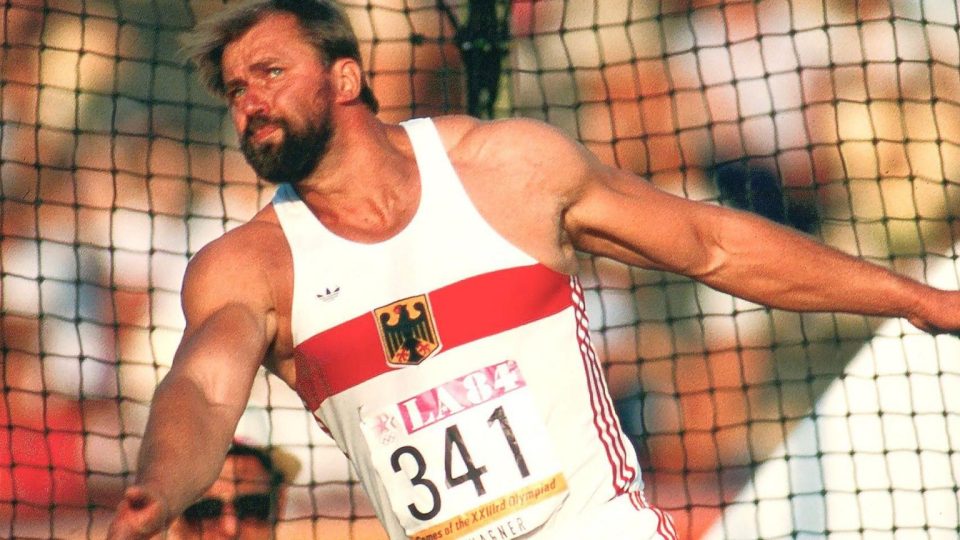“These are all harmless drugs. All athletes take them. It’s really nothing special.” These were the words of German heptathlete Birgit Dressel, who placed ninth in the 1984 Olympic Games.
Tragically, her belief could not have been further from reality. On April 8, 1987, after taking medication for a severe back injury, Dressel experienced an allergic-toxic shock that led to rapid organ failure. She died in a Mainz hospital two days later, at just 26 years old.
An autopsy revealed traces of over 100 drugs in her system, including anabolic steroids she had been using for years. Her medical history indicated she had been injected with at least 40 different substances throughout her athletic career, with one practitioner administering 400 injections.
Throughout her final years, Dressel became heavily dependent on prescription drugs to cope with pain and compete. Her grueling training regimen had taken a toll on her body, leading to various injuries, including severe hip pain, spinal damage, and degeneration in her knees and feet. To manage her suffering, she reportedly consumed nine pills a day alongside additional medications prescribed by three different doctors.
Dressel’s tragic story is a stark reminder of the lengths to which individuals will go to remain competitive, but it also serves as a mirror to a larger issue. After Germany’s reunification in 1990, documents uncovered from the now-defunct East German secret police, the Stasi, confirmed long-held suspicions of a state-sponsored doping program in East Germany that allowed them to achieve remarkable sporting success.
These revelations vindicated Western European nations, who had long suspected that East Germany and other Soviet satellite states were engaged in systematic cheating throughout the 1980s. The truth, however, paints a more complicated picture; the line between “clean” and “dirty” athletes was not as distinct as one might think.
Dressel’s roots lay in West Germany—not East. Although West German sports may not have garnered the same level of scrutiny, they harbored their own secrets. “From the 1970s onward, as East Germany began winning medals, West German politicians felt the pressure to ensure their athletes were successful as well,” explained Letizia Paoli, who chaired a 2009 committee investigating West German doping at the University of Freiburg.
“Winning medals was perceived as a reflection of political and economic success.”
The East German doping machine was comprehensive and organized. Stasi files indicated that an initially amateurish doping program evolved in 1974 through a policy known as State Research Plan 14.25, which mandated doping across various sports for Olympic potential.
Thousands of athletes, some as young as 12, were subjected to a culture where winning required unethical practices. Ines Geipel, a former East German athlete and author of Behind The Wall, described the rigorous training regime, stating, “We trained three times a day and engaged in physiotherapy, sauna, and yoga. We were like well-bred horses waiting to race.”
Geipel later discovered that she was primarily given an anabolic steroid called oral turinabol. Refusing or questioning the doping regimen could lead to sponsorship withdrawal and damaging marks against one’s name in Stasi files, impacting employment and housing prospects.
Geipel experienced first-hand the Stasi’s oppressive methods when they learned of her plans to defect after the 1984 Olympics. Following her return to East Germany, she faced expulsion from sports and social alienation. “If you escaped, you were labeled a traitor,” Geipel recalled, recounting the Stasi’s attempts to manipulate her life and choices.
She ultimately fled to the West in August 1989, crossing the heavily fortified border via Hungary. Observers can trace the roots of Germany’s doping history back decades, revealing components on both sides of the Cold War.
The doping scandal re-emerged in the public eye with the 2006 Tour de France when German cyclist Jan Ullrich was implicated in Operation Puerto, an investigation linking him to illegal blood transfusions. The scandal unleashed a wave of inquiries into doping practices within the T Mobile cycling team, uncovering connections to a decade-long doping culture that started in the early 1990s.
As Lauro Fuentes’ clinic revealed, a fridge stocked with hundreds of blood bags and machines for blood manipulation exposed widespread malfeasance. Investigations into the Freiburg medical community unveiled deep-rooted doping practices, leading to an independent committee that unveiled a troubling picture of medical professionals deeply entwined in sports doping.
Key figures like Professors Joseph Keul and Armin Klumper stand out in this narrative. Keul, who worked with elite athletes and led the German Olympic team, supported doping as a necessary evil for performance enhancement. Klumper developed infamous “Klumper cocktails,” which combined various medications tailored to individual athletes’ needs. Dressel was among many who frequented Klumper for treatment.
Despite numerous allegations, some figures continued to defend Klumper, citing his expertise in athlete care. However, evidence of doping linked to Klumper was extensive, becoming more apparent as public discourse shifted.
Germany’s perception of itself as a virtuous competitor was shattered by a 2013 report by the German Ministry of Sport. It disclosed the extensive history of doping practices in both East and West Germany, suggesting that the nation’s sporting successes during the Cold War were tainted by illicit enhancements.
The report’s startling claims implicated West Germany’s 1954 World Cup win and raised suspicions regarding the 1966 final, further deepening the shadows cast over Germany’s athletic history.
Although many sports federations cooperated with the investigation, the German Athletics Association and the Football Association resisted, raising questions about transparency and accountability regarding doping practices.
The University of Freiburg has pledged to thoroughly investigate its past in sports medicine. In July 2023, Germany announced its plans to bid for the 2040 Olympic and Paralympic Games, aiming to mark 50 years since reunification.
As Germany grapples with its complex sporting past, the narrative remains contested. While East Germany’s industrial-scale doping practices are well-documented, the secrets of West Germany are emerging, painting a picture of a country equally willing to sacrifice ethics for victory. In the race for Cold War medals, many felt that any advantage was fair game.
Credit: BBC Sport




